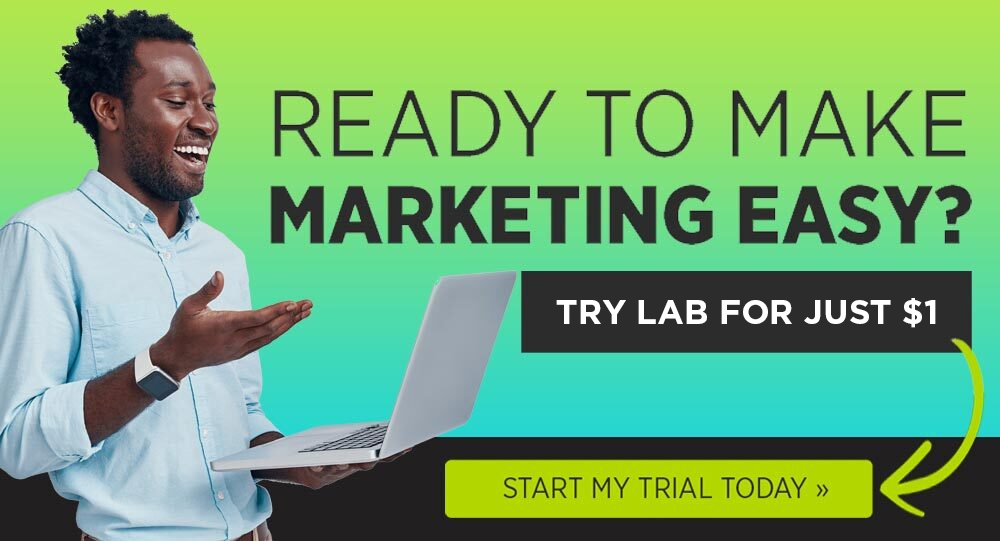The 5 Most Common Missing Elements of Email Campaigns
[ad_1]

Want to enhance your open rate and improve conversions on your next email marketing campaign? Add these five elements and find out how much better your email marketing could be.
If you’re here, we hope you’re convinced that email campaigns are still effective and are here to set out on a brand new campaign. Great! Here are the 5 essential elements of email marketing you have to implement.
Number 1: Email Personalization and Segmentation
When possible, address your subscribers by their first name. Emails with a name in the subject line have a 26% higher open rate than one without personalization.
Getting a subscriber’s name is as easy as adding the field to your email newsletter sign-up or contact form.
The process of splitting up your master list of subscribers is called segmentation. Ultimately, the best email list strategy is to make an email group for each version of your customer avatar. You can also segment based on geographical location, age, or status as a customer. Segmentation ensures that you send emails that are relevant to what your subscribers want.
The purpose of a segmentation campaign is to let your subscribers self-separate by declaring their interests.

GET CERTIFIED. Discover the proven plan for effortless, automated email marketing. Click Here
How to Segment Subscriber Lists
“How might one go about segmenting subscribers,” you ask?
Here’s an example: your company is having a webinar on how to install a new fridge. You promote it with an email campaign and send 3 marketing emails:
- Promotional email number 1: How to Tell if Your Refrigerator is Still Running
- Promotional email number 2: 4 Ways to Save Energy in the Kitchen
- Promotional email number 3: Let us Teach You to Install a Fridge
Keep an eye on which emails and internal links are being clicked. This information tells you what your subscribers are interested in. You can use that information to sort them into groups.
In this example, subscribers who engaged with the first email are information seekers. They might be DIYers or they might be shopping for a new fridge. Or they might appreciate a good ol’ fashioned joke.
If the second email got lots of clicks, you might assume a couple things. First, those subscribers might be green consumers. They value energy efficiency, reducing their carbon footprint, and reaping the benefits of cost savings. Or they might be thrifty consumers looking for ways to reduce costs. Either way, you have enough information to help direct your efforts.
Finally, subscribers who click through email number 3 may have just purchased a new icebox. In this case, they’ll be prime candidates to watch your webinar. They might also be ready to pay someone else to install their new cooler.
Other options for your next segmentation campaign are a “still interested?” campaign or a flash sale campaign. Every click [or lack thereof] from your subscribers is a piece of information about them.
- Clicks tell you what your subscribers like and what works for them.
- If they don’t click, that tells you what they don’t like and what won’t work.
Not all customers have the same needs. So to send them all the same exact emails will inevitably hurt you.
Number 2: Email Campaign Metric Tracking
What’s that saying? “You can’t improve what you don’t measure.” I think that’s it.
Trying something new can feel like a shot in the dark. Trust us. We’ve made our fair share of email marketing mistakes. The key is to start tracking metrics as soon as possible.
By tracking metrics starting with the very first email blast you send, you can…
- Know how many people opened it
- Figure out how many people clicked on the links
- Determine whether or not they bought anything.
These metrics will be invaluable to your next email campaign (or even just your next email!).
Here are the main ones you definitely want to keep an eye on:
- Email deliverability: Is your email marketing campaign making it to their inbox, or is it getting flagged as junk?
- Email open rate: Is your email list opening their emails, or are they getting deleted?
- Click-through rate: If they open it, did they read the email content and check out your links?
- Disengagement rate: Did this email make them unsubscribe?
Most email marketing software solutions have a built-in campaign monitor to keep track of all the important information. Knowing these statistics can help you adjust your game plan moving forward.
Number 3: Scheduling Emails
Your email marketing strategy, like your content marketing strategy, should be consistent and well-thought-out. The timing of your email blasts can make a difference in your performance metrics.
Here’s one way to think about it: Do you want to get business emails during dinner? Anytime you like to be unplugged and/or away from work, your clients probably do too.
We recommend emailing from 8 am- 5 pm. Research shows that Thursdays are the most effective days to send emails, with Tuesdays and Wednesdays falling right behind. The weekends and Mondays tend to yield lower open rates.
That said, there is not a singular best time to send your emails. Just let your metrics lead the way.
Number 4: Send A Welcome Email
Do you remember that guy you met at the grocery store? About a month ago? Brown hair, rather tall, funny shirt?… No? Well, that makes sense because 3 weeks after you meet someone, you forget them [unless there is some other connection]. And just like you don’t remember that fictional man, your clients won’t remember you.
It’s important to buy yourself some inbox real estate while you are fresh on the recipient’s mind. The best thing to do is send a welcome email.
The welcome email does a few things for you and your business.
First, it builds brand awareness. In it, let subscribers know what to expect from you, the newsletter, your business, etc. Set the tone and expectations for them. If they like what you have to offer, they’ll keep opening. If they don’t like it, they’ll unsubscribe and your list will be better for it.
Second, it drives traffic to your social media. Some people (yours truly) would rather casually engage on social media than read through a thousand emails. Give your subscribers options for engaging with you. They’ll be better engaged when it comes time to ask for the sale.
Well-written welcome email copy is worth the effort. Here are 10 key elements to include in your welcome email:
- Welcome and Thank You
- Set Expectations
- Encourage Whitelisting
- Restate Benefits
- Introduce the Brand
- “Best Of”
- Bounce Them Around
- Next Steps
- Open a Loop
- Start a Conversation
We have a playbook that describes each element of this list, plus gives detailed instructions and examples. The playbook is included in our Lab membership.
This welcome email can double as the first email in your campaign. Knock it outta the park and you’ll set a solid foundation for every campaign after.

Number 5: Email Marketing Strategy
If you’ve come this far, you probably already know this one. The main idea is: be purposeful. You’re in the big leagues now! Only focusing on your campaign when you have extra time is not a good strategy. Doing so won’t yield the kind of ROI that email marketing can achieve for your business.
Here’s a simple outline of one aspect of the DigitalMarketer strategy, our Customer Journey:
- Aware
- Subscribe
- Engage
- Convert
- Excite
- Ascend
- Advocate
- Promote
Knowing that our job is to successfully walk our customers through these 8 steps changes the way we approach each and every step of our email campaigns.
We hope that wasn’t overwhelming! Just by reading this article, you are taking a step towards better email marketing campaigns. If you’re still unsure where to start, we have plenty of resources available by searching “email” in our blog. Or if you want to dive in and become an expert, consider investing in our email marketing course.
[ad_2]
Source link









